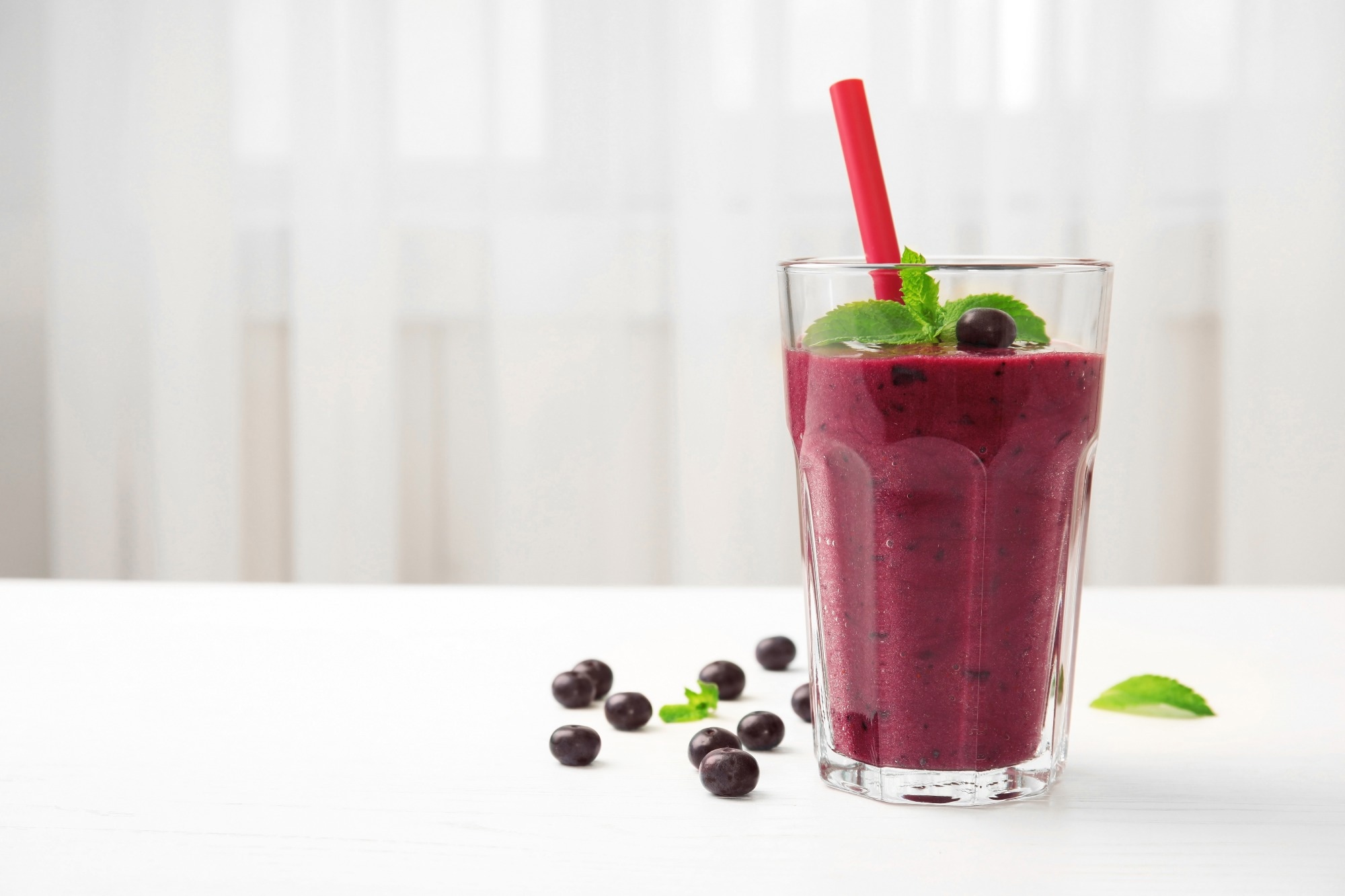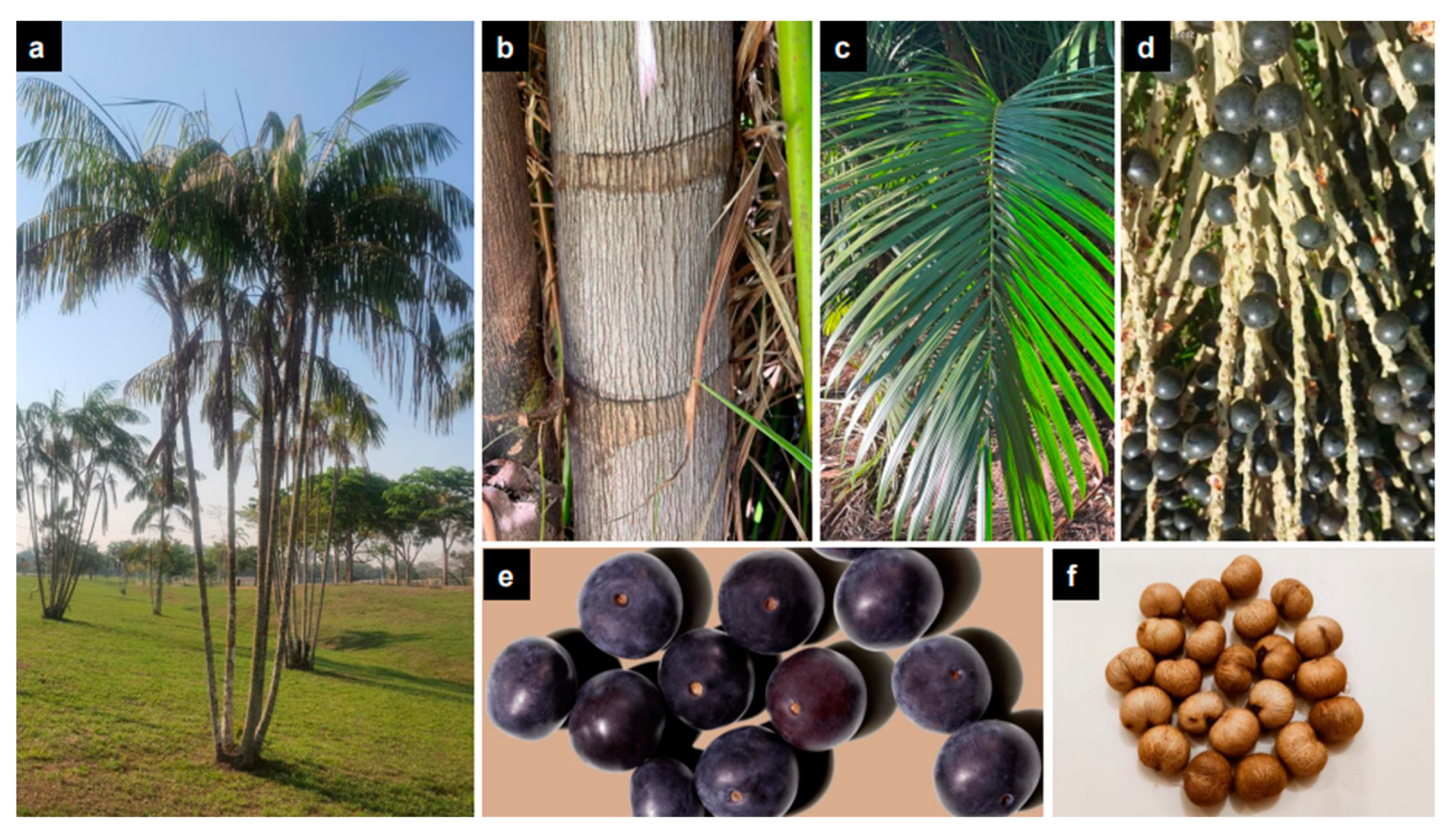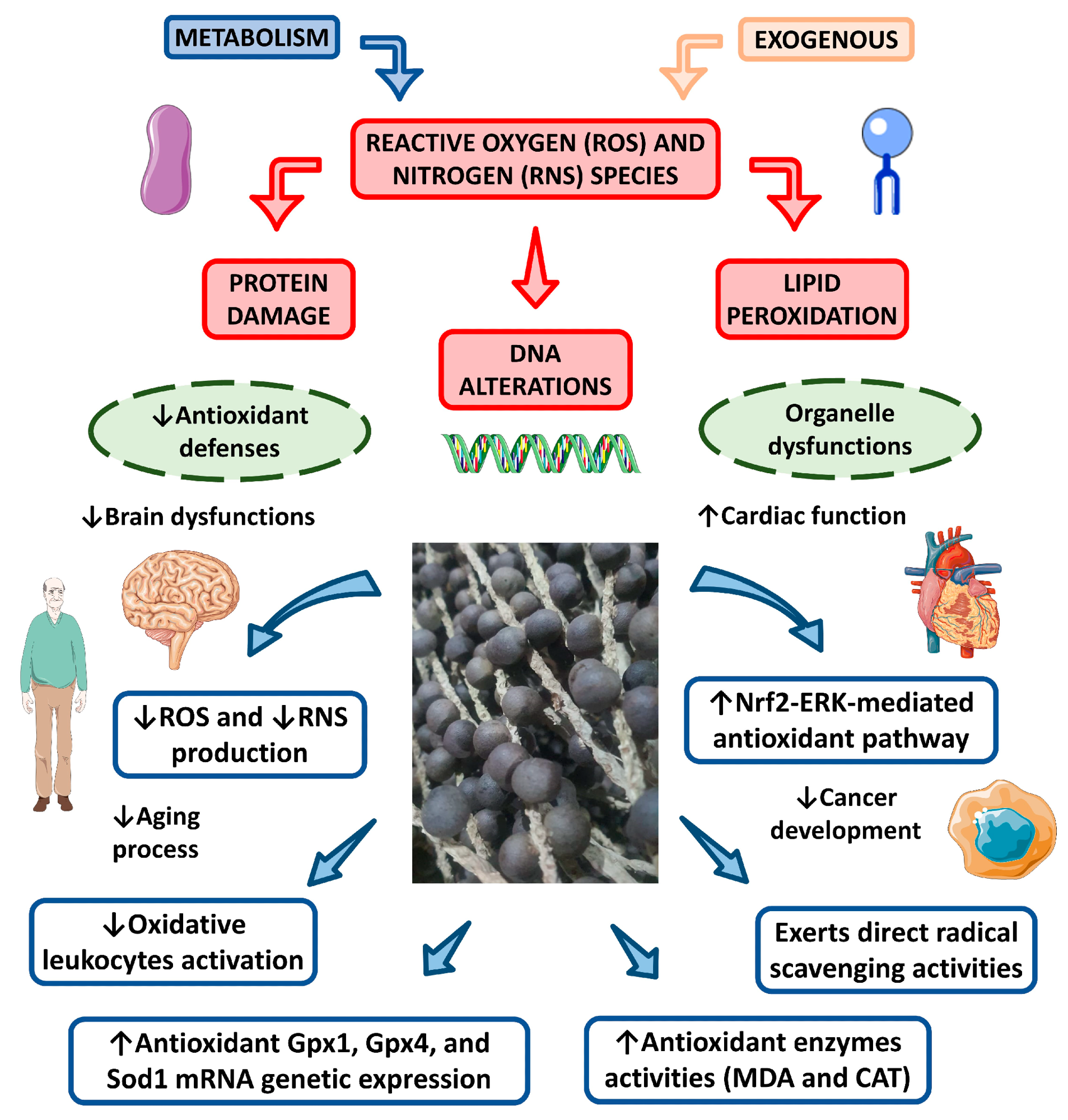Introduction
Nutritional and phytochemical profile
Antioxidant and anti-inflammatory benefits
Neuroprotective effects
Market vs. evidence
Conclusions
References
Further reading
The açaí berry is a nutrient-dense Amazonian fruit rich in antioxidants and polyphenols, showing promising anti-inflammatory and neuroprotective effects. Ongoing research suggests potential metabolic benefits, though human evidence remains limited.
 Açaí berries. Image Credit: New Africa / Shutterstock.com
Açaí berries. Image Credit: New Africa / Shutterstock.com
Introduction
The açaí berry is the common name for the fruit of the Euterpe oleracea palm, a species native to the tropical floodplains of Central and South America. For centuries, the açaí berry has been widely consumed by riverine populations in the Amazon basin, where archaeological documents and folklore recount how its pulp was leveraged as a significant source of calories and nutrients.1,2
Modern analyses confirm that açaí pulp is an energy-dense food that has long been integrated into regional diets, with Brazil now its leading producer and exporter, generating billions in annual revenue from frozen-pulp products.1
Despite this long history of regional use, scientific interest in the açaí berry is a recent phenomenon, emerging only in the early 21st century.3 Its subsequent ascent to global "superfood" status was propelled by its classification as a fruit with exceptionally high polyphenol content and potent in vitro antioxidant activity.1,2

Photographs of various parts of E. oleracea. (a) whole plant; (b) stem; (c) leaf; (d) panicles of fruits; (e) isolated fruits; and (f) isolated seeds.1
Nutritional and phytochemical profile
Nutriomics investigations have revealed that the açaí berry has a low sugar content and a high lipid concentration, accounting for up to 50% of its dry weight.1 Despite being rich in fatty acids, the profile of açaí berry is dominated by heart-healthy unsaturated fats, primarily monounsaturated oleic acid and polyunsaturated linoleic acid, as well as dietary fiber, essential minerals, and B-family vitamins.. 1,3
It also provides appreciable levels of calcium, magnesium, manganese, iron, zinc, and copper - minerals that contribute to its functional food classification.2,3
Recent research has linked the deep purple hue of the açaí berry to its dense concentration of polyphenolic compounds.3 The most abundant polyphenols include anthocyanins, with cyanidin-3-rutinoside and cyanidin-3-glucoside being the principal forms identified in the literature. Oligomeric proanthocyanidins are also present in concentrations of 1.5–6.1 mg/g, further enhancing antioxidant capacity.2
Açaí berry also contains a complex array of other flavonoids, phenolic acids, and proanthocyanidins, which contribute to its high oxygen radical absorbance capacity (ORAC), ranking among the most antioxidant-dense fruits studied rather than unequivocally exceeding all others.1
Antioxidant and anti-inflammatory benefits
Previous research suggests that, rather than acting as direct, stoichiometric antioxidants, açaí berry-derived polyphenols function as signaling molecules that activate the body's own endogenous defense systems. In vivo studies suggest that açaí can increase activity of the nuclear factor erythroid 2-related factor 2 (Nrf2) pathway, which regulates the expression of several protective antioxidant enzymes, including heme oxygenase-1 and superoxide dismutase. This mechanism has been confirmed in multiple preclinical models linking açaí-induced Nrf2 activation to reduced oxidative stress in neural and hepatic tissues.1,3,4
Açaí extracts have also been shown to inhibit the activation of nuclear factor-kappa B (NF-κB), a central transcription factor involved in systemic inflammatory responses.3 These preclinical observations have been confirmed in humans, including a randomized, double-blinded, placebo-controlled trial in individuals with metabolic syndrome reporting that 12 weeks of consuming an açaí beverage significantly reduced urinary levels of 8-isoprostane and plasma levels of interferon-gamma (IFN-γ). However, the same trial detected no improvement in lipid or glucose metabolism markers, indicating selective anti-inflammatory effects.5

Antioxidant effects of açaí. ROS cause protein damage, DNA alterations, and lipid peroxidation throughout biological systems. Açaí decreases the production of oxidative products and increases cellular antioxidant capacity. Symbols and abbreviations: ↑: increase; ↓: decrease; CAT: catalase; GPx-1: glutathione peroxidase-1; GPx-4: glutathione peroxidase-4; MDA: malonaldehyde; Nrf2-ERK: nuclear transcription factor-erythroid 2-related factor 2-extracellular signal-regulated kinases; ROS: reactive oxygen species; RNS: reactive nitrogen species; SOD1: superoxide dismutase 1.1
Neuroprotective effects
Using the neurotoxin MPTP murine model for Parkinson's disease, daily oral supplementation with açaí extract mitigated both motor and non-motor symptoms, while also preventing the death of dopaminergic neurons. Mechanistically, protection was associated with activation of the Nrf2-HO-1 pathway and suppression of α-synuclein aggregation and microgliosis.4
Similarly, promising results have been observed in Alzheimer's disease models, where açaí extract can protect cultured neuronal cells from beta-amyloid peptide-induced toxicity while physically disrupting the formation of beta-amyloid fibrils and aggregates. In aged rats, dietary supplementation with açaí pulp improved both working and reference memory while attenuating inflammatory signaling in the microglia.6,7
Despite these results, no human clinical trial has investigated the effects of açaí berry intake on cognitive function, cognitive decline, or neurodegenerative diseases. In fact, most claims on the benefits of açaí berry for brain health are extrapolations from animal and cell-culture research and have not been validated in humans. According to the Alzheimer’s Drug Discovery Foundation, there are zero clinical trials on açaí and cognition, underscoring the need for human translational work.6,7,8
Market vs. evidence
A significant discrepancy persists between marketing claims for açaí products and validated scientific evidence. The commercial promotion of açaí often overstates the available evidence, with claims of anti-cancer or weight-loss effects based on preliminary laboratory findings that have not been substantiated in human trials. A 2025 meta-analysis confirmed that while açaí intake may modestly reduce total lipid concentrations, it has no significant effect on LDL-C, HDL-C, total cholesterol, or triglycerides.8
Compounding this issue, a 2019 analysis of 20 commercially available açaí dietary supplements found that over half of the products contained little to no açaí fruit, and some were adulterated with unlisted ingredients.9
Conclusions
This article highlights the açaí berry as a phytochemically dense fruit with a unique nutritional profile. A substantial body of preclinical evidence provides a strong scientific rationale for the potent antioxidant, anti-inflammatory, and neuroprotective properties of açaí berry. Emerging human data further indicate modest benefits for systemic oxidative and inflammatory biomarkers but limited effects on lipid metabolism.5,8
Clinical trials confirm that açaí favorably modulates biomarkers of oxidative stress and inflammation. However, available evidence does not support its use for improving lipid profiles or glucose metabolism in individuals with metabolic syndrome. Future investigations should prioritize standardized extract formulations and mechanistic endpoints in neurodegenerative models.4,6
The most urgent priority for future research is to address discrepancies between compelling preclinical neuroprotective data and the lack of human cognitive trials. Well-designed, placebo-controlled studies are crucial to elucidate whether the benefits observed in animal models of Parkinson's and Alzheimer's disease can be replicated in humans.
References
- Laurindo, L. F., Barbalho, S. M., Araújo, A. C., et al. (2023). Açaí (Euterpe oleracea Mart.) in Health and Disease: A Critical Review. Nutrients 15(4); 989. DOI:10.3390/nu15040989, https://www.mdpi.com/2072-6643/15/4/989.
- Matta, F. V., Xiong, J., Lila, M. A., et al. (2020). Chemical Composition and Bioactive Properties of Commercial and Non-Commercial Purple and White Açaí Berries. Foods 9(10); 1481. DOI:10.3390/foods9101481, https://www.mdpi.com/2304-8158/9/10/1481.
- da Silva Santos, V., de Almeida Teixeira, G. H., & Barbosa, F., Jr. (2014). Açaí (Euterpe oleracea Mart.): A Tropical Fruit with High Levels of Essential Minerals - Especially Manganese - and its Contribution as a Source of Natural Mineral Supplementation. Journal of Toxicology and Environmental Health, Part A 77(1–3); 80–89. DOI:10.1080/15287394.2014.866923, https://www.tandfonline.com/doi/10.1080/15287394.2014.866923.
- D’Amico, R., Impellizzeri, D., Genovese, T., et al. (2022). Açai Berry Mitigates Parkinson's Disease Progression Showing Dopaminergic Neuroprotection via Nrf2-HO1 Pathways. Molecular Neurobiology 59(10); 6519–6533. DOI:10.1007/s12035-022-02982-5, https://link.springer.com/article/10.1007/s12035-022-02982-5.
- Kim, H., Simbo, S. Y., Fang, C., et al. (2018). Açaí (Euterpe oleracea Mart.) beverage consumption improves biomarkers for inflammation but not glucose- or lipid-metabolism in individuals with metabolic syndrome in a randomized, double-blinded, placebo-controlled clinical trial. Food & Function 9(6); 3097–3103. DOI:10.1039/c8fo00595h, https://pubs.rsc.org/en/content/articlelanding/2018/fo/c8fo00595h.
- Alzheimer's Drug Discovery Foundation. (2021). Açaí Berries & Your Brain. Cognitive Vitality. https://www.alzdiscovery.org/cognitive-vitality/ratings/acai-berries. Accessed on 16 October 2025.
- Carey, A. N., Miller, M. G., Fisher, D. R., et al. (2015). Dietary supplementation with the polyphenol-rich açaí pulps (Euterpe oleracea Mart. and Euterpe precatoria Mart.) improves cognition in aged rats and attenuates inflammatory signaling in BV-2 microglial cells. Nutritional Neuroscience 20(4); 238–245. DOI:10.1080/1028415x.2015.1115213, https://www.tandfonline.com/doi/10.1080/1028415x.2015.1115213.
- Candeloro, B. M., Bitencourt, T. H. B., Elias, S. F. R., et al. (2025). Investigating the Impact of Açai (Euterpe oleracea) on Lipid Profile: A Comprehensive Systematic Review and Meta‐Analysis. Nutrition Bulletin 50(2); 206–219. DOI:10.1111/nbu.12735, https://onlinelibrary.wiley.com/doi/10.1111/nbu.12735.
- Earling, M., Beadle, T., & Niemeyer, E. D. (2019). Açai Berry (Euterpe oleracea) Dietary Supplements: Variations in Anthocyanin and Flavonoid Concentrations, Phenolic Contents, and Antioxidant Properties. Plant Foods for Human Nutrition 74(3); 421–429. DOI:10.1007/s11130-019-00755-5, https://link.springer.com/article/10.1007/s11130-019-00755-5.
Further Reading
Last Updated: Oct 28, 2025